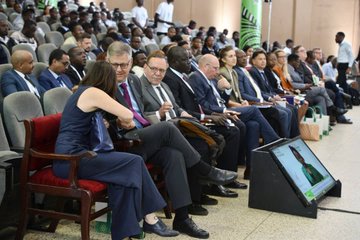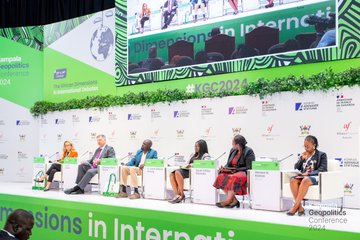The 7th edition of the Kampala Geopolitics Conference, which tackles the African dimensions in international debates, kicked off Wednesday, October 23, 2024, at Makerere University’s Yusuf Lule Central Teaching Facility Auditorium.
In his opening remarks, Makerere University Vice Chancellor Prof Barnabas Nawangwe urged the participants to address issues of national and global interest, such as gainful employment, food security, Governance, and democracy.
“We live in a world where no one should take Africa for granted because it is an ever-changing continent. These changes include the Israeli-Palestine war, the Sudanese war, and the Somali insecurity, which I hope we will address in this year’s conference,” he stated.
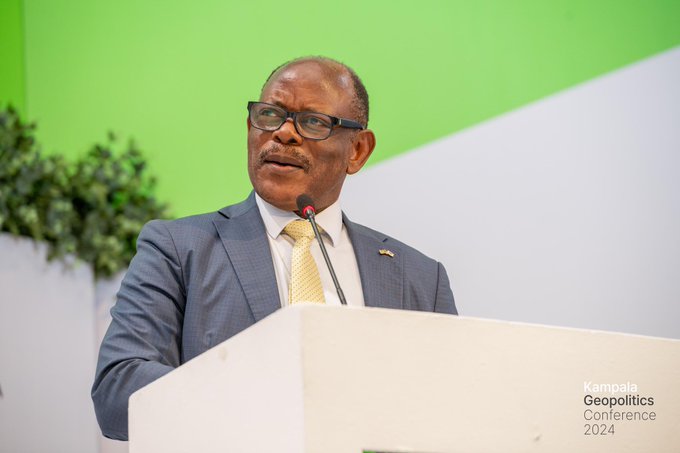
Janyce Obrecht, the Deputy Head of Mission at the French Embassy, said since 2018, the partners for the Kampala Geopolitics Conference have provided this platform for dialogue and free exchange on contemporary issues, and regional and international debates.
“For the past six years, the partners have been providing this interactive platform for dialogue and free exchange on contemporary issues, regional and international debates,” noted Obrecht.’

War crimes, gender-based violence, and justice
The first panel of the conference addressed “Interactions between war crimes, gender-based violence, and justice” under armed conflicts and peacebuilding.
During the panel, Scott Bartell, an Attorney and Programme Manager at the Trust Fund for Victims at the International Criminal Court, said Uganda has worked with more than 30 organizations in the region to provide victim support.
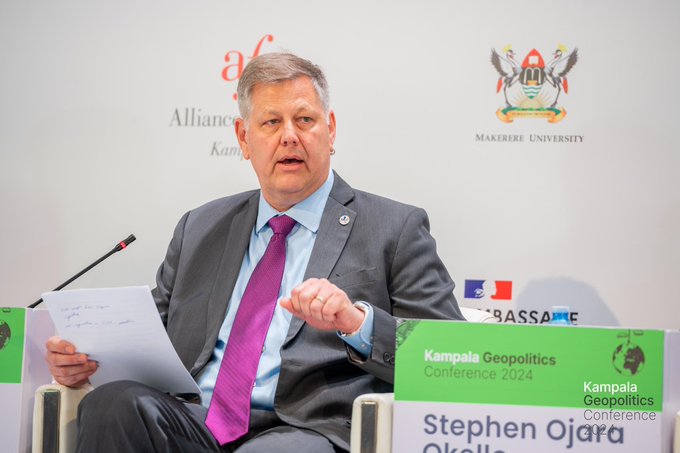
“Usually, our agreement with the ICC requires us to offer monetary compensation, counseling, psycho-social support, rehabilitation, and working with community leaders to aid community-wide interventions,” said Bartell.
He added: “In recent years and conflicts, the ratio between military and civilian deaths has risen to 25 percent and 85 percent deaths, respectively, with a third of these deaths being children is a great stain on humanity.”
Dr Irene Winnie Anying, the Country Director for Avocats Sans Frontieres in Uganda, cited a need to use the customary legal systems of all societies, together with the formal legal constitution system, while creating tangible solutions for war victims in Africa.
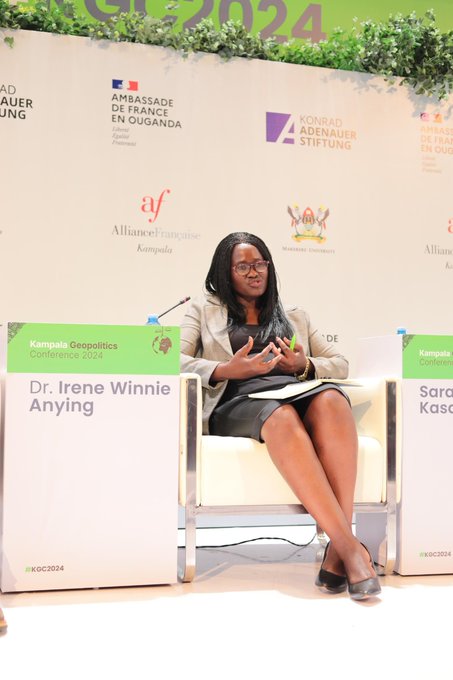
Dr. Sarah Kihika Kakande, the Head of the Office of the International Center for Transitional Justice, said a legal framework is very important to ensure that issues of sexual crimes are dealt with.
She also cited psycho-social support services for victims, saying domestic legal systems are important to address the impunity of sexual crimes.
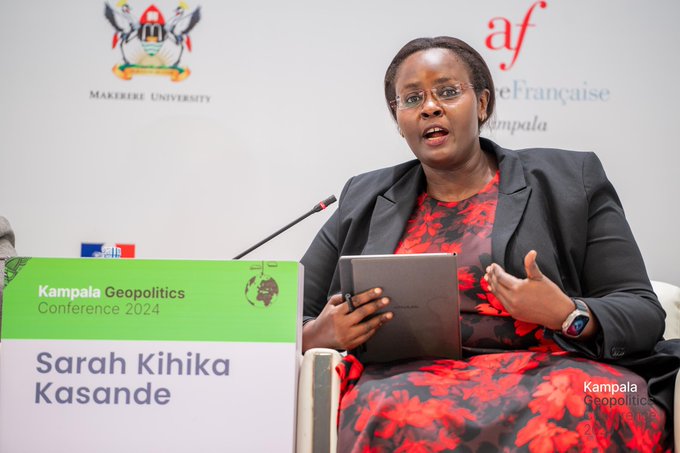
“Sexual war crimes were or have been committed as a pattern to annihilate complete societies. Sometimes, girls and women were abducted to serve the purpose of gender household roles for the perpetrators,” remarked Dr Kasande.
She added: “The primary responsibility of tackling perpetrators of international crime lies on the state! It is important to look at a holistic approach to tackling the underlying triggers of conflict and address the factors that create these revisions.”
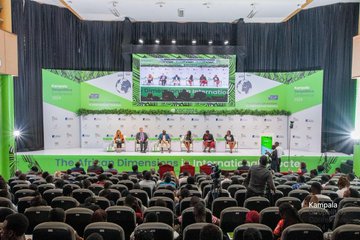
On her part, Dr. Guillemine Taupiac, Professor of Law, specializing in International and Regionalised Criminal Law, explains why reconciliation requires acknowledgment and accountability, not tolerance or invisibility of crimes.
She said sexual and gender-based violence in armed conflicts, over the years, has always been invisible because they are tolerated worldwide.
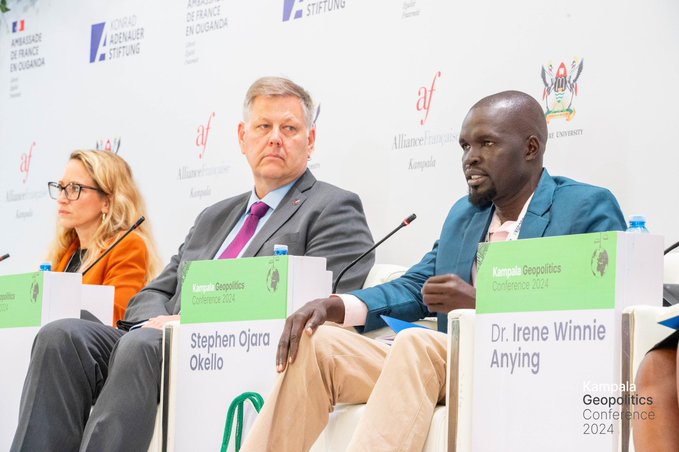
“This hinders efforts to craft solutions for the victims. There is no proper fight against impunity in SGBV cases without seeing the victims. Victims must be seen and heard in the criminal proceedings and taken into consideration,” stated Dr. Taupiac.
Balancing Global Climate Commitments with Africa’s Development Needs
During the second panel discussed Balancing Global Climate Commitments with Africa’s Development Needs, Prof. Yazidhi Bamutaze, Deputy Principal of the College of Agricultural and Environmental Sciences at Makerere University, said that by looking at the history of global debates, one can say that Climate change is the most discussed issue globally at all levels of human society.
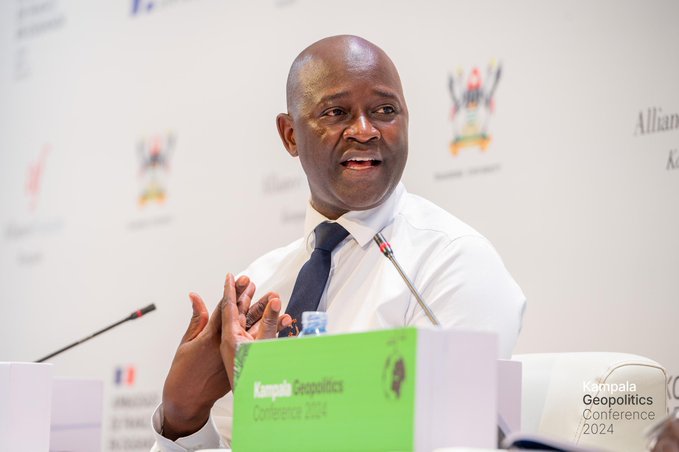
“Until recently, Uganda had the lowest fertilizer application rate, showing that the country’s soils still had a relatively good amount of soil nutrients, which is not the case today, and this affects food productivity and, in turn, food security,” he noted.
Prof. Bamutaze believes the world has shifted from skepticism concerning global warming, and all matters of climate change to acceptance that the adverse effects of climate change are here to stay unless we combat it.

“When economists agree that all issues of climate change must be tackled, this presents evidence that climate change is pertinent to a nation’s development agenda.”
On his part, Arthur S. Kimeze, a Climate Change and Sustainability Scientist, said some of the economic tools that can foster climate change adherence are green bonds.
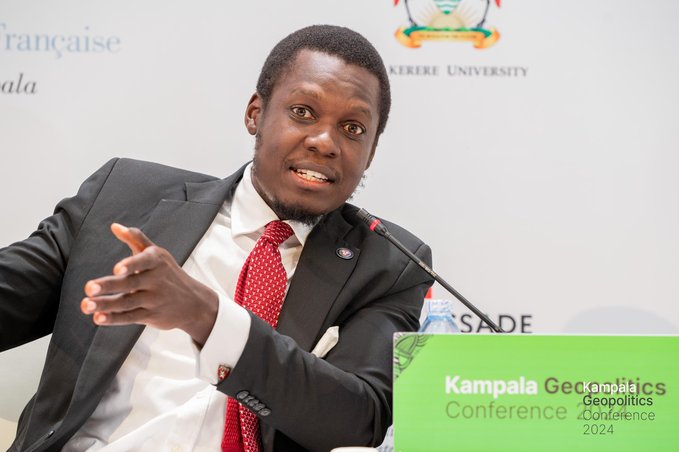
“Green bonds can be used to specifically develop climate change sensitive infrastructure projects. Adaptation is increasing resilience to climate change. If you’re in the cattle corridor, for instance, an adaptation project would deal with water security,” he noted.
“We must come up with a set of Climate Change negotiators, not activists. Individuals who understand the specific contributions of businesses are into climate change,” added Kimeze, the Project Manager at the Climate Finance Unit.
Awel Uwihanganye, Chief Advancement Officer and Deputy Chief of International Relations at Makerere University, who moderated the panel, said African farmers can no longer depend on weather patterns because of unpredictable climate conditions caused by climate change.
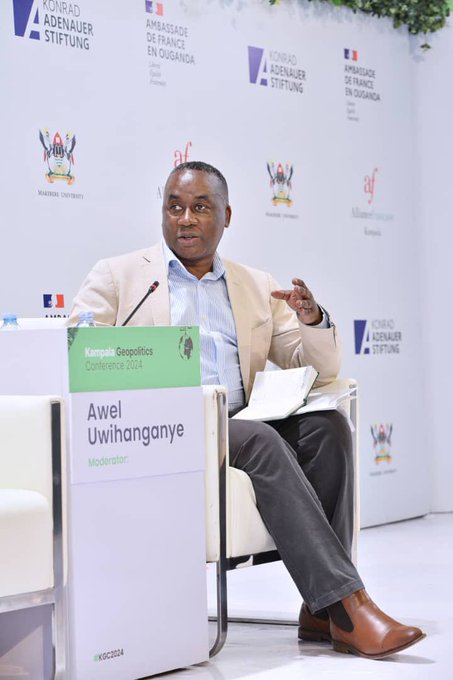
“Staple crops like maize, sorghum, and millet are faced with potential yield reductions of up to 30%,” he noted.
